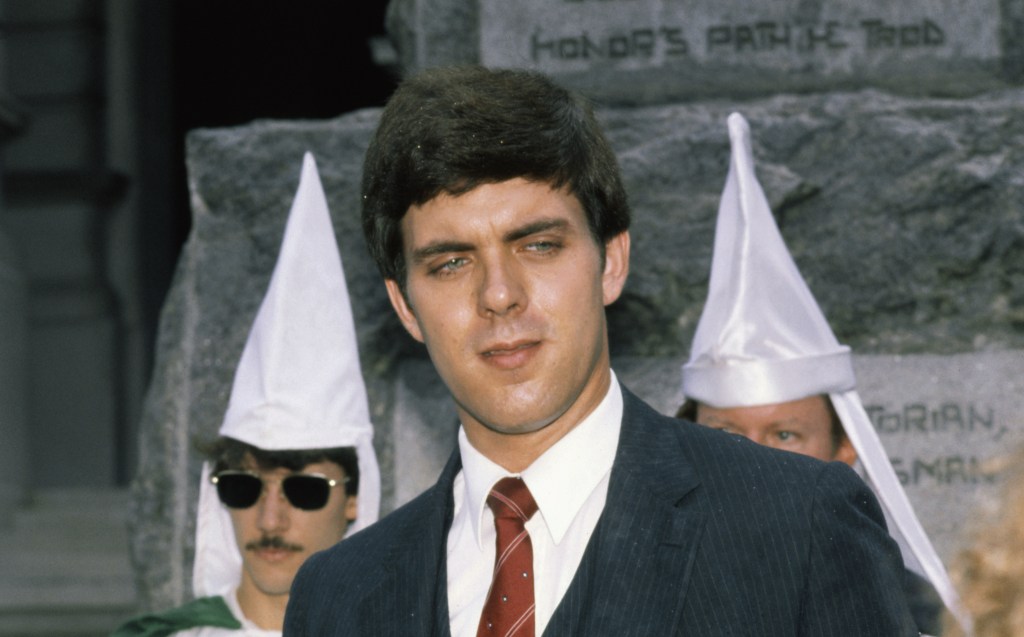Former Ku Klux Klan leader’s adult child comes out as trans after rejecting white nationalism

R Derek Black is now an advocate for anti-racism following being brought up by KKK Grand Wizard, Don Black. (R Derek Black)
The adult child of a former Ku Klux Klan (KKK) leader has come out as transgender.
In their book The Klansman’s Son: My Journey from White Nationalism to Antiracism, R Derek Black comes out as transgender, writing in the epilogue that they use they/them pronouns.
In the book they reflect on their childhood when they were often mistaken for a girl because of their long hair, and now want to voice support for transgender people.
“I can’t imagine how horrible it would have been to grow up in the current political environment as a child who, until puberty, was quite happy about being often perceived as a girl, who then hid that part of myself,” they say.
The 35-year-old author’s father is former KKK Grand Wizard Don Black.
According to the Southern Poverty Law Centre: “The Ku Klux Klan, with its long history of violence, is the oldest and most infamous of American hate groups.”
Black’s father runs white nationalist hate site stormfront.org, to which, as a child, Derek contributed in the children’s section.
At the age of 10, they went on The Jenny Jones talk show, joined by members of the anti-LGBTQ+ Westboro Baptist Church.
In their book, Black opens up about how their attendance at liberal New College, in Sarasota, Florida in 2010 led to them rejecting the white supremacist movement. It also helped their “emerging understanding of my gender identity”.
They write, according to the Daily Mail: “[New College’s] culture, and the people I met there, helped me accept that I fit under the trans umbrella.”

Despite the repressive environment they grew up in, Black dated a Jewish woman, Allison Gornik, at New College, and they married in 2020.
Black’s book comes in the wake of them writing a letter to the Southern Poverty Law Centre in 2013, in which they rejected white nationalism.
They wrote that they rejected the movement after “having grown past my bubble, talked to the people I affected, read more widely, and realised the impact my actions had on people I never wanted to harm”.
They reveal in the book, due to be published by Abrams Press later this month, that they don’t speak to members of their family often.
How did this story make you feel?

